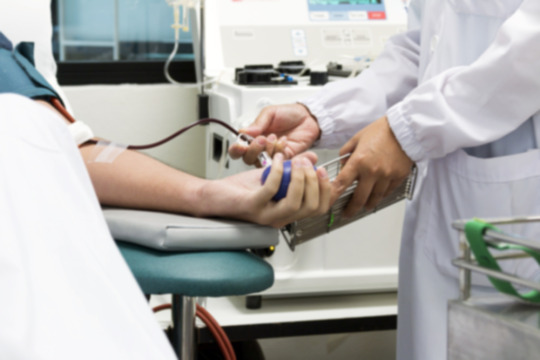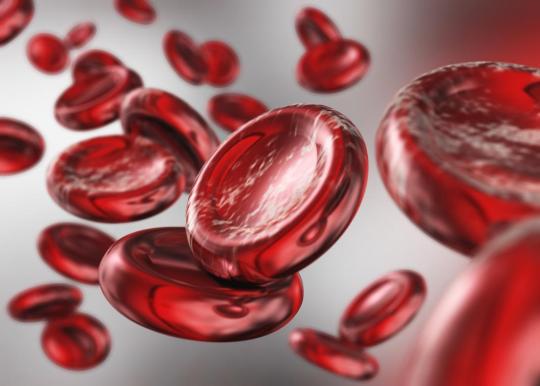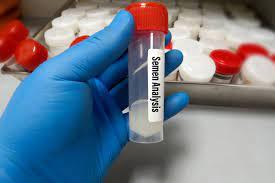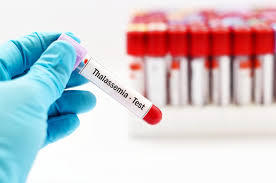Text
What is Human chorionic gonadotropin (hCG) ?

Human chorionic gonadotropin (hCG) is a hormone generated by a pregnant woman's placenta. Early in pregnancy, the amount of hCG in the blood rises and is excreted in the urine. A pregnancy test detects the presence of hCG in the blood or urine and either confirms or rules out pregnancy.During the first few weeks of pregnancy, hCG is essential for sustaining the function of the corpus luteum. During the first trimester (8-10 weeks) of a typical pregnancy, hCG production progressively rises, culminating in about the 10th week following the previous menstrual cycle. Levels then gradually decline throughout the balance of the pregnancy. Within a few weeks of birth, hCG is no longer detectable.When a pregnancy develops outside of the uterus (ectopic), the hCG level in the blood rises more slowly. When an ectopic pregnancy is suspected, monitoring the quantity of hCG in the blood (quantitative test) over time may be helpful in making the diagnosis.Similarly, when a growing infant (fetus) has a chromosomal abnormality such as Down syndrome, the hCG blood level may be abnormal. Between 11 and 20 weeks of pregnancy, an hCG test is regularly done in combination with a few additional tests to check for fetal abnormalities.For more information, consult Dr. Panchal Lab the Best Diagnostic Centre in Borivali.
0 notes
Text
What is Biliary atresia?

Biliary atresia is a disorder in which the bile ducts outside and within the liver become damaged and obstructed in babies. Because bile cannot move into the gut, it accumulates in the liver and causes harm. Scarring, loss of liver tissue and function, and cirrhosis result from the injury.
Causes and Symptoms-Typically, the first indication of biliary atresia is jaundice or yellowing of the skin and whites of the eyes caused by bile accumulation in the body. Jaundice commonly develops in infants with biliary atresia between the ages of 3 and 6 weeks.
Diagnosis-To diagnoses biliary atresia, doctors will ask about the infant’s medical and family history, perform a physical exam, and order a series of tests. If the results of the tests indicate that a newborn has biliary atresia, surgery will be performed to confirm the diagnosis.
For more information, consult Dr. Panchal Lab the Best Diagnostic Centre in Borivali.
0 notes
Text
What is primary sclerosing cholangitis?

PSC, or primary sclerosing cholangitis, is a chronic condition in which the bile ducts within and outside the liver become inflamed and scarred, eventually narrowing or blocking them. When this occurs, bile accumulates in the liver, causing liver damage.
Causes and Symptoms-The most common symptoms of primary sclerosing cholangitis (PSC) are fatigue and itchy skin. Other symptoms may include weight loss without effort, a loss of appetite, a fever, and abdominal discomfort. The exact etiology of PSC is unknown.
Diagnosis- Primary sclerosing cholangitis is diagnosed based on your medical and family history, a physical exam, and the findings of medical testing such as blood tests and imaging studies. To confirm the diagnosis, your doctor may conduct a liver biopsy.
For more information, consult Dr. Panchal Lab the Best Diagnostic Centre in Borivali.
0 notes
Text
What is Factor replacement therapy?

Factor replacement therapy is a form of treatment in which clotting factors obtained from blood donations or synthesized in a laboratory are administered to replace the missing clotting factor. When you encounter bleeding your doctor may offer factor replacement treatment. Prophylactic treatment refers to the use of replacement therapy on a regular basis to avoid bleeding. Prophylactic therapy is most often utilized in the treatment of serious bleeding problems.
Bypassing medicines to treat antibodies. Other kinds of clotting factors are added to these medications to help your blood clot. This therapy may increase the likelihood of blood clots developing in blood arteries.
Clotting factor concentrates are used to restore clotting factors that are absent in hereditary bleeding disorders. This therapy may increase the likelihood of antibodies developing in the blood. Factor concentrates are sometimes used in larger doses to treat bleeding problems caused by antibodies.
To give clotting factors, fresh frozen plasma from human blood is used. It is used to treat bleeding problems caused by the absence of numerous clotting factors, such as liver disease-related hemorrhage.
For more information, consult Dr. Panchal Lab the Best Diagnostic Centre in Borivali.
0 notes
Text
How to diagnose bleeding disorder?

Your doctor may perform one or more of the following tests to determine if a bleeding disorder is hereditary or acquired.
A complete blood count (CBC) is a test that counts the number of blood cells and platelets in your blood. If your platelet count is excessively low, you may have a platelet disorder rather than a clotting factor disorder.
A partial thromboplastin time (PTT) test, also known as an activated PTT (PTT), is used to determine how long blood takes to clot. It can aid in determining whether certain clotting factors are present.
Another test to determine how long it takes blood to clot is a prothrombin time (PT) test. It measures clotting factors that the PTT test does not.
A mixing test to help identify whether the bleeding problem is caused by antibodies that prevent clotting factors from working properly, as in autoimmune disorders or acquired hemophilia.
Von Willebrand factor (VWF) tests are used to determine the quantity of von Willebrand factor present if the factors are functioning properly, and the form of VWD you have.
Clotting factor tests, also known as factor assays or coagulation panels, are used to assess if certain clotting factors are absent or present at lower levels than normal, which might indicate the kind and severity of the bleeding disease. If you have extremely low amounts of clotting factor VIII, for example, you may have hemophilia A.
Antigen and activity assays for factor XIII to detect factor XIII deficiency.
Genetic testing is to see if any specific genes are responsible for the bleeding disorder.
For more information, consult Dr. Panchal Lab the Best Diagnostic Centre in Borivali.
0 notes
Text
What are the Types of hemoglobin?

Hemoglobin A (Hb A) Is the most common kind of hemoglobin (Hb) in adults, accounting for about 95-98 percent of all hemoglobin detected in adults; Hb A has two alpha protein chains and two beta (ß) protein chains.
Hemoglobin A2 (Hb A2) – accounts for around 2-3.5 percent of adult hemoglobin (Hb); it contains two alpha and two delta () protein chains.
Hemoglobin F (Hb F, fetal hemoglobin) – accounts for 1% to 2% of adult hemoglobin (Hb); it contains two alpha () and two gamma () protein chains. The major hemoglobin generated by a growing infant (fetus) during pregnancy is hemoglobin F (Hb F, fetal hemoglobin). Its production typically declines during a year of birth and reaches adult levels within 1-2 years.
For more information, consult Dr. Panchal Lab one of the best Diagnostic Centre in Borivali.
0 notes
Text
What exactly are iron tests?

To monitor your iron levels, iron tests detect several elements in your blood. Iron is a mineral that is required for the formation of red blood cells. Red blood cells are responsible for transporting oxygen from your lungs to the rest of your body. Iron is also necessary for normal muscle, bone marrow, and organ function. Iron levels that are too low or too high can cause serious health problems.
Different types of iron tests include:
The serum iron test determines the quantity of iron in the blood.
The transferrin test analyses transferrin, a protein that transports iron throughout the body.
Total iron-binding capacity (TIBC) is a measurement of how efficiently iron binds to transferrin and other proteins in the blood.
The ferritin blood test determines how much iron is stored in the body.
For more information, consult Dr. Panchal Lab one of the best Diagnostic Centre in Borivali.
0 notes
Text
What Exactly Is ELISA?

ELISA is an enzyme-linked immunosorbent assay (also known as EIA: Enzyme Immunoassay) technology used to detect and analyze antibodies, hormones, peptides, and proteins in the blood.
Antibodies are blood proteins produced in response to a specific antigen. In the case of some infectious disorders, it aids in determining the existence of antibodies in the body.
ELISA is different from other antibody assays in that it produces quantitative findings and separates non-specific and specific interactions that occur via repeated binding to solid surfaces, which is often a polystyrene multiwell plate.
For more information, consult Dr. Panchal Lab one of the best Diagnostic Centre in Borivali
0 notes
Text
Who needs a sperm analysis?

You may need a sperm analysis for the following reasons:
Male infertility: If a couple has been having difficulty trying to conceive, there may be a semen abnormality. In certain circumstances, this is related to a problem with a man's sperm. A semen analysis evaluates the likelihood that a man can cause a pregnancy.
Vasectomy follow-up: A vasectomy's success is determined by a semen analysis. This treatment prevents sperm from being deposited in the tubes. If there are no sperm in the semen, the vasectomy was successful, and a man cannot get pregnant.
For more information, consult Dr. Panchal Lab one of the best Diagnostic Centre in Borivali
0 notes
Text
What is the treatment for thalassemia?

Treatment is determined on the severity of your disease. The most prevalent kind of thalassemia, mild thalassemia, does not need treatment. Blood transfusions and folic acid supplements may be used to treat moderate thalassemia. Folic acid is a vitamin that your body needs for the production of red blood cells. Blood transfusions and folic acid supplements may be used to treat severe thalassemia.
If you are looking for a Diagnostic center, Consult Dr. Panchal Lab and Diagnostics Centre one of the best Diagnostic centre in Borivali.
0 notes
Text
What are the various forms of Pediatric Thalassemia?

Alpha-thalassemia
Silent carrier, which means you have a genetic mutation for alpha thalassemia, but it doesn't cause symptomatic anemia.Alpha thalassemia trait, which can cause mild anemia.Hb H illness is characterized by mild to severe anemia and an enlarged spleen (splenomegaly).
The most severe type of alpha thalassemia is alpha thalassemia major. If this is discovered before your kid is born, your infant may get a life-saving blood transfusion while still in the womb. Children with this illness will need regular blood transfusions as well as long-term monitoring and care. A bone marrow transplant may heal this illness.
Beta Thalassemia
The beta thalassemia trait may result in mild to severe anemia. The most severe type of beta thalassemia is thalassemia major (Cooley's anemia). Children with this illness will need regular blood transfusions as well as long-term monitoring and care. This condition can be cured with a bone marrow transplant.
If you are looking for a Diagnostic center, Consult Dr. Panchal Lab and Diagnostics Centre one of the best Diagnostic centre in Borivali.
0 notes
Text
How is thrombocytopenia diagnosed?

If you experience difficult-to-stop bleeding or other indicators of thrombocytopenia, your doctor may perform the following:
Physical examination: Your family history and medical history will be reviewed by the doctor. In addition, your doctor will look for bruising, rashes (petechiae), and an enlarged spleen or liver.
Counting the blood: A complete blood count (CBC) measures platelet, white blood cell, and red blood cell counts.
Blood clot test: A blood clot test determines how long it takes for blood to clot. The partial thromboplastin time (PTT) and prothrombin time (PT) are two of these assays (PT).
Thrombotic thrombocytopenic purpura (TTP): This is a life-threatening disorder that is associated with thrombocytopenia. It causes clotting in small blood vessels, meaning blood can be cut off from the central nervous system or organs such as the kidneys. Symptoms may include bruising or bleeding, fever, neurological problems, abdominal pain, chest pain, kidney problems and jaundice, depending on which organs are affected. TTP is a medical emergency.
Immune thrombocytopenic purpura: Also known as idiopathic thrombocytopenic purpura (ITP), this is more common in children, though it can also happen in adults after a virus, during pregnancy, or after developing an immune system disorder. It causes a low platelet count in people who are otherwise well. It is not known what causes this type of thrombocytopenia.
If you are looking for treatment, Consult Dr Panchal Lab and Diagnostics Centre one of the best Diagnostic Centre in Borivali.
0 notes
Text
What are the symptoms of thrombocytopenia?

Heparin-induced thrombocytopenia (HIT): A type of thrombocytopenia that happens after a person receives the medication heparin (a blood thinner used to treat blood clots). This is a potentially serious condition that needs medical attention.
Thrombotic thrombocytopenic purpura (TTP): This is a life-threatening disorder that is associated with thrombocytopenia. It causes clotting in small blood vessels, meaning blood can be cut off from the central nervous system or organs such as the kidneys. Symptoms may include bruising or bleeding, fever, neurological problems, abdominal pain, chest pain, kidney problems and jaundice, depending on which organs are affected. TTP is a medical emergency.
Immune thrombocytopenic purpura: Also known as idiopathic thrombocytopenic purpura (ITP), this is more common in children, though it can also happen in adults after a virus, during pregnancy, or after developing an immune system disorder. It causes a low platelet count in people who are otherwise well. It is not known what causes this type of thrombocytopenia.
If you are looking for treatment, Consult Dr. Panchal Lab and Diagnostics Centre one of the best Diagnostic Centre in Borivali.
0 notes
Text
What are the different types of thrombocytopenia?

Heparin-induced thrombocytopenia (HIT): A type of thrombocytopenia that happens after a person receives the medication heparin (a blood thinner used to treat blood clots). This is a potentially serious condition that needs medical attention.
Thrombotic thrombocytopenic purpura (TTP): This is a life-threatening disorder that is associated with thrombocytopenia. It causes clotting in small blood vessels, meaning blood can be cut off from the central nervous system or organs such as the kidneys. Symptoms may include bruising or bleeding, fever, neurological problems, abdominal pain, chest pain, kidney problems, and jaundice, depending on which organs are affected. TTP is a medical emergency.
Immune thrombocytopenic purpura: Also known as idiopathic thrombocytopenic purpura (ITP), this is more common in children, though it can also happen in adults after a virus, during pregnancy, or after developing an immune system disorder. It causes a low platelet count in people who are otherwise well. It is not known what causes this type of thrombocytopenia.
For more information, consult Dr. Panchal Lab one of the best Diagnostic Centre in Borivali
0 notes
Text
WHAT IS DIALYSIS?
Dialysis helps your body by performing functions when the kidney is unable to do due to illness or injury. The kidney has many functions, the most significant of which is to maintain the body's fluid balance.
If the kidneys are unable to filter the blood adequately, fluid and waste products will accumulate to a critical level. High blood pressure and diabetes are the two most common causes of renal failure. When the quantity of waste products in a person's body becomes excessive, it may cause illness and need dialysis. Doctors will do a urine test to determine the degree of kidney function. There are several more signs that determine the requirement for dialysis. If you are unable to eliminate extra bodily water or have problems with your lungs, heart, or stomach, you may be advised to undergo dialysis.
For more information , consult Dr. Panchal Lab one of the best Diagnostic Centre in Borivali
4 notes
·
View notes
Text
Why should people with kidney disease keep track of their hydration intake?

Healthy kidneys function to drain extra fluid from your body on a regular basis.A person on dialysis can have fluid buildup between treatments. Excess fluid may cause edema and weight gain, as well as raised blood pressure and a buildup of fluid in the lungs, making breathing more difficult. Excess fluid requires the heart to work harder. Dialysis patients must carefully monitor their fluid intake, which includes fluid from meals such as fruits and vegetables. Salt should also be decreased or avoided since it might make you thirsty, forcing you to drink more fluids.
For further information ,consult Dr. Panchal Lab one of the best Diagnostic Centre in Borivali
4 notes
·
View notes
Text
What is primary sclerosing cholangitis?

PSC, or primary sclerosing cholangitis, is a chronic condition in which the bile ducts within and outside the liver become inflamed and scarred, eventually narrowing or blocking them. When this occurs, bile accumulates in the liver, causing liver damage.
**Causes and Symptoms-**The most common symptoms of primary sclerosing cholangitis (PSC) are fatigue and itchy skin. Other symptoms may include weight loss without effort, a loss of appetite, a fever, and abdominal discomfort. The exact etiology of PSC is unknown.
Diagnosis- Primary sclerosing cholangitis is diagnosed based on your medical and family history, a physical exam, and the findings of medical testing such as blood tests and imaging studies. To confirm the diagnosis, your doctor may conduct a liver biopsy.
If you are looking for a diagnostic center, Visit Dr. Panchal Lab and Diagnostics Centre one of the best Diagnostic Centre in Borivali.
5 notes
·
View notes